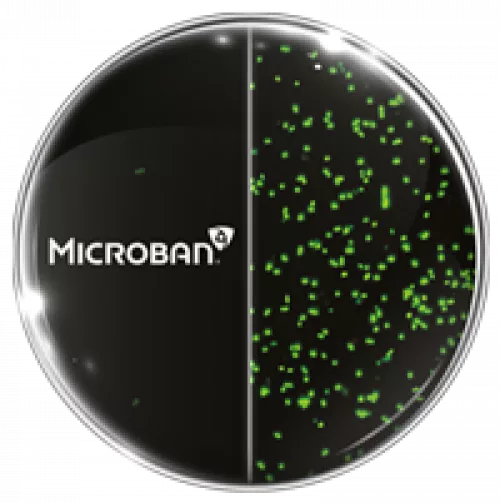Dirty Hotel Rooms vs. Traveler Loyalty
Maintaining customer loyalty is key in the hospitality industry, as acquiring a new customer is anywhere from five to 25 times more expensive than retaining an existing one. Traveler loyalty is impacted by the perceived and actual cleanliness of hotel rooms now more than ever, with travelers noting enhanced cleaning and hygiene practices as a top consideration when booking a hotel, outranked only by price.
Anyone who travels for business has felt that uneasy feeling when you open the door to your hotel room, holding your breath as you walk through the threshold. We are hoping for a clean, well-appointed room that will make a great home-away-from-home. However, what we sometimes get is a dirty hotel room that makes us wish we hadn't left our disinfectant wipes at home. As a result, we spend the next nights trying to avoid touching compromised spaces and holding the remote control with our sleeve.
Time Magazine highlights some of the dirtiest places in your hotel room. Light switches and TV remote controls were at the top of the list – not surprising as they are high touch surfaces that are not often cleaned. However, bedspreads, drinking glasses and coffee pots were also highly ranked. In addition, the bathroom has been shown to be a breeding ground for bacteria in a study in the American Journal of Infection Control, simply because of the spread of bacteria from flushing the toilet.

Why Should Hotels Care About Bacteria and Odors in Guest Rooms?
As the hospitality industry becomes more competitive, hotel management companies are looking for ways to differentiate their brand and grow customer loyalty. Hotel chains are implementing programs centered around everything from water conservation to sustainability in efforts to reach their consumers and grow market share. However, research shows that 77% of business and leisure travelers value the quality of the room in determining preference.
Travelers want to know that extra effort has been taken by their hotel of choice to ensure a pleasant experience, including provision of a clean and odor-free hotel room. Visible cleanliness cues are a primary component of building trust and confidence among guests, with 57% of travelers expecting greater transparency around what hotels are doing to provide a clean environment for patrons. Odors have a huge impact on first impressions as well, with many hotel chains opting for continuous scent pumping systems to masque bad smells. Beyond normal cleaning practices, hotels cans look to incorporate more products and surfaces with a built-in antimicrobial technology that remain cleaner for longer and stay protected against odor causing mildew and bacteria.

Antimicrobial Protection for Hotels, Resorts and Convention Centers
Hotel managers and manufacturers of products used in the hospitality industry can demonstrate a greater commitment to clean by choosing to enhance each stage of the guest journey with antimicrobial product protection. While not a replacement for normal cleaning practices, products with built-in Microban® antimicrobial and odor control technologies remain cleaner and fresher in between standard cleanings.
The constantly active technology incorporated at the point of manufacture creates an environment where bacteria growth is inhibited, reducing the development of unpleasant odors and the risks of bacteria spreading on the surface of high touch products. Microban technologies can be incorporated into building materials as well, helping to reduce the growth of mold and mildew, increasing product durability and longevity.

The hospitality industry is already responding to this growing concern by implementing antimicrobial technologies in products for a cleaner hotel experience. TV remote controls by AmerTac (Zenith), bedding by Manchester Mills, guest room and bathroom accessories and even wallpaper sold into the industry can be found with built-in protection against degrading microbial growth.
What are the benefits of incorporating Microban® built-in antimicrobial technology into hospitality products?
- Greater peace of mind. Guests experience greater confidence and reassurance from the A Trustmark Brand, knowing that their environment is inherently cleaner and fresher.
- Extended lifetime of products and surfaces. Treated products and surfaces are protected against degrading microbial growth, remaining more durable and longer lasting.
- A true clean and lasting freshness. Microban helps product and surfaces stay cleaner in between cleanings, filling in the gaps of regular cleaning routines during guest stays.
- History of safe and effective use. Microban has a long-standing FAQs across a range of environments including healthcare, hospitality, retail, office, and more.
- Support a treated product ecosystem. When making purchasing decisions for your hotel or resort, choosing to invest in products with built-in antimicrobial and odor control technologies demonstrates a level of quality and care for guests that goes beyond untreated products and surfaces.
What hospitality products can be treated with built-in antimicrobial and odor control technology?
Each stage of the guest journey can be enhanced from check in to check out to establish a brand as the ‘cleaner’ hotel option and improve guest experience.
Lobby: floor coatings, reception phones & computer accessories, room keys, furniture, luggage carts, elevator buttons, handrails
Guest Rooms: door handles, sheets, pillow casings, mattress encasements, remote controls, carpeting, light switches
Guest Bathrooms: shower glass, sink hardware, countertops, tile flooring and shower walls, bathtubs, shower curtains, shower liners, bath mats
Dining Areas: dinnerware, cutlery, cloth napkins, menus, tabletops, commercial kitchen equipment
Contact us today to learn more about establishing a trademark of cleanliness in the hospitality industry.





















